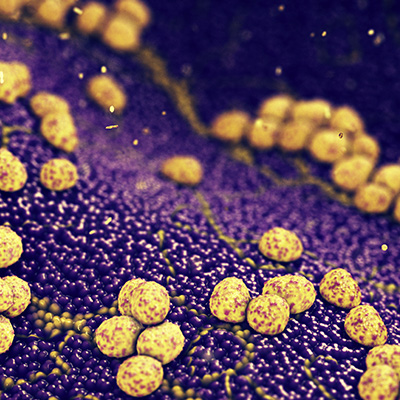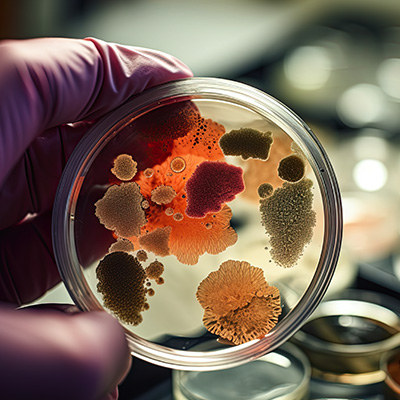Pseudomonas aeruginosa
P. aeruginosa is an important Gram-negative bacterium (GNB), an opportunistic human pathogen frequently isolated from life-threatening hospital infections, including pneumonia, sepsis, and burn and wound infections.

Acute and chronic P. aeruginosa infections are associated with significant mortality, putting immunocompromised people and cystic fibrosis (CF) patients at particular risk. Because of its intrinsic resistance to many antibiotics, and increasing resistance to all other available antibiotics, P. aeruginosa has become a major threat to human health and was recently classified as a critical priority pathogen by the World Health Organization (WHO).
NCCR AntiResist aims to accelerate discovery and development of novel anti-pseudomonal treatments by developing in vitro models that approximate the physiological state of P. aeruginosa in the human lung.
Our three focus approach
- To determine P. aeruginosa habitats, physiological states, and responses to antibiotics in human lungs.
- To develop improved lung-mimicking infection models by using in-patient data as guidance and benchmarks.
- To utilize single cell biomarkers and CRISPRi-seq to dissect P. aeruginosa physiology during antibiotic exposure in different in vitro models.
Leadership of Pseudomonas aeruginosa research
Leader:
Urs Jenal »
Co-leader:
Marek Basler »









